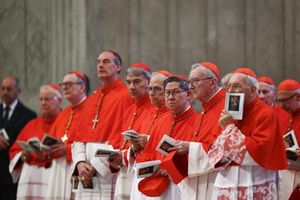Fabio Ochoa Vásquez, a notorious figure from the infamous Medellín Cartel, has officially been released from U.S. federal custody after serving 25 years of his 30-year prison sentence. His release on December 3 marks the end of more than two decades behind bars, following his extradition to the United States amid various drug trafficking charges related to his role within the cartel during its peak operations from the late 1980s to the early 1990s.
The Medellín Cartel, which Ochoa was part of, was once considered the most powerful drug trafficking organization globally, primarily known for its vast cocaine production and distribution networks. This organization operated under the notorious leadership of Pablo Escobar, whose criminal activities generated profits estimated at around $420 million weekly at the height of its power.
Ochoa, now 67 years old, was initially indicted for his involvement in the murder of Barry Seal, who was a Drug Enforcement Administration (DEA) informant. Seal's life and brutal demise were popularized by the 2017 film "American Made," starring Tom Cruise. Though he was arrested for the first time in Colombia back in 1990 and secured under government promises against extradition, his fortunes faded as law enforcement intensified its pursuit of drug lords. He eventually faced extradition to the United States and was convicted for his active role in drug smuggling operations.
Long before his U.S. prison term, Ochoa and his brothers had amassed incredible wealth through the drug trade. The Ochoa siblings—Fabio, Jorge Luis, and Juan David—were listed among Forbes Magazine's billionaires from 1987 to 1992 due to their significant influence and operations beneath the Medellín cartel. Their wealth was deeply entrenched not only in the drug trade but also tied to legitimate business pursuits such as ranching and horse breeding, showcasing their multifaceted influence.
What’s particularly intriguing is the perceived evolution of Ochoa’s presence following the dramatic decline of the Medellín Cartel. Although many may have forgotten about him, Ochoa resurfaced via the popular Netflix series "Narcos," which depicted the tumultuous days of drug trafficking and the individuals who shaped it. This resurgence brought Ochoa's story, along with the contrasting background of privileged upbringing, back to public attention.
Now, as he prepares for his return to Colombia, his future is uncertain, yet it seems economically promising. Richard Gregorie, a retired Assistant U.S. Attorney involved during Ochoa's prosecution, commented, "He won’t be retiring a poor man, that's for sure," emphasizing the fact authorities could never track down all the illicit proceeds amassed by the Ochoa family over the years.
During Ochoa's prison time, Colombian police seized several properties linked to the family with valuations estimated at around $6 million. Nevertheless, sources suggest his wealth extends well beyond this seizure, hinting at hidden assets yet to be uncovered.
Upon release, Ochoa remains under the custody of U.S. Immigration and Customs Enforcement (ICE) as Colombian authorities investigate any outstanding warrants he may face back home. Ochoa's release leaves many questioning the broader impacts this may have on drug trafficking dynamics within Colombia, especially as the nation grapples with the new challenges posed by shifting trade patterns from traditional cartels to newer players.
Overall, the Ochoa saga does not merely encapsulate the life of one man but echoes the history of the Medellín Cartel, its rise and fall, and the continual grip narcotics have held on the regional and international stage. This intertwining of wealth, crime, and power offers rich narratives for both law enforcement and cultural observers, especially as new generations emerge under the shadow of such colorful, albeit dark, histories.
With his imminent return home, Fabia Ochoa Vásquez's release symbolizes both closure and opportunity—to him personally, and perhaps to Colombia as it navigates its way through the legacies of its drug-fueled past.



